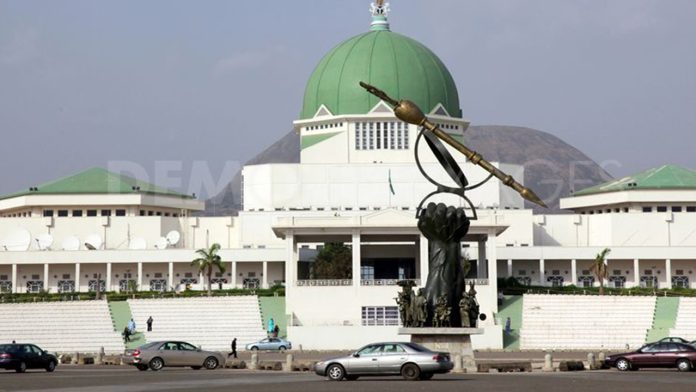The National Assembly has reviewed the 2025 Appropriation Bill, making significant adjustments to the financial allocations within the budget, which was initially passed last week. While the total budget size remains unchanged at N54.99 trillion, legislators have slashed over N500 billion from capital expenditure and redirected the funds to increase recurrent (non-debt) expenditure.
The revision came as a response to errors identified in the original budget document. Lawmakers in both the Senate and the House of Representatives, during their plenary sessions on Tuesday, carried out a thorough review of allocations for various Ministries, Departments, and Agencies (MDAs). The adjustments resulted in some ministries receiving increased allocations, while others experienced budget cuts.
Reason for Budget Revision
Chairman of the House Committee on Rules and Business, Francis Waive (APC, Delta), who presented the motion for the review, stated that the Joint Appropriations Committee discovered errors in the figures initially passed. To rectify these discrepancies, the committee recommended necessary adjustments without altering the overall budget size.
“The final figure of N54.99 trillion as well as the statutory transfers of N3.64 trillion and N14.32 trillion for debt servicing remain unchanged. However, the capital expenditure allocation of N23.44 trillion was reduced, while the recurrent (non-debt) expenditure component of N13.56 trillion was increased,” Waive explained.
Who Benefited from the Adjustments?
The revised budget saw an increase in allocations to several key ministries and government agencies, including:
- The Presidency
- The Federal Ministry of Information and National Orientation
- The Office of the National Security Adviser
- The Office of the Secretary to the Government of the Federation
- The Federal Ministry of Agriculture and Food Security
- The Federal Ministry of Works
- The Federal Ministry of Labour and Employment
- The Federal Ministry of Transportation
- The Federal Ministry of Innovation, Science, and Technology
- The Federal Ministry of Education
- The Federal Ministry of Environment
- The Federal Ministry of Health and Social Welfare
These ministries saw a boost in their funding to accommodate pressing national needs, particularly in areas of security, infrastructure, and public service reforms.
Ministries and Agencies That Saw Budget Cuts
On the other hand, several ministries and agencies saw a reduction in their budget allocations. These include:
- The Ministry of Defence
- The Ministry of Police Affairs
- The National Pension Commission
- Universities Pensions
- The Office of the Head of the Civil Service of the Federation (Civilian Pensions)
- The Pension Transition Arrangement Directorate
The decision to cut funding in these areas was reportedly due to reassessments that showed possible overestimations or duplications in the initial budget.
Implications of the Budget Adjustments
The increase in recurrent spending means that more funds will be allocated to salaries, administrative costs, and maintenance of government operations. While this could enhance public service efficiency, it also raises concerns over the reduced capital expenditure, which could impact infrastructure projects and economic development initiatives.
With the 2025 fiscal year set to commence in a few months, stakeholders, including economic analysts and civil society groups, have expressed mixed reactions to the adjustments. Some commend the National Assembly for identifying and correcting errors in the budget, while others worry about the potential slowdown in capital projects that could arise from the cuts.
Next Steps
Following the approval of the reviewed budget, the National Assembly is expected to formally transmit the revised document to President Bola Tinubu for assent. The government must now ensure the efficient implementation of the adjusted allocations to meet national development goals while maintaining fiscal discipline.
As the country prepares to navigate the economic realities of 2025, the effectiveness of these budgetary adjustments will be closely monitored to determine their impact on governance, economic stability, and national growth.

